What surprised me most about Blind Delon’s Discipline was the fascinating stylistic diversity it displayed: from electro to post rock or synthwave, always with satisfactory results. In the interview we have had the pleasure of conducting with the now duo, they show that this stylistic diversity comes from a boundless musical interest. We will be able to see them live at the Ombra Festival that will take place in Barcelona from 26th to 28th November.
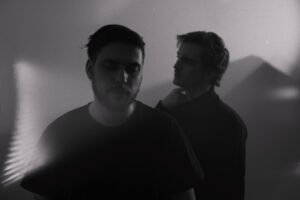 —At the very beginning (2016), it was only you, Mathis, in Blind Delon and the music was more darkwave/synthpop. What were your expectations when you started the project? Did you already want to create a band back there?
—At the very beginning (2016), it was only you, Mathis, in Blind Delon and the music was more darkwave/synthpop. What were your expectations when you started the project? Did you already want to create a band back there?
—Mathis: What is certain is that at the very beginning, I had no idea that the project would become what it is now. I come from a family of musicians where we listened to all kinds of music. In the 2000s, my father was part of the electro project Nancy Fortune and led me to discover electronic music quite young. At home, there was 70s to 90s rock, classical, baroque, film soundtracks, French variety, a bit of everything. I think the idea of founding this project and composing music that I wasn’t really familiar with comes first and foremost from the eclectic culture that my parents passed on to me. When the project started, what I wanted to do was mix my father’s electronic legacy with my love for rock music and instruments. That may also be why Blind Delon is what it is today, a mixture of style, it is something that has remained. At the time I didn’t know we were going to be a band, but what I was sure of was that I wanted to play that music on stage.
—How did you start your collaboration with Oráculo Records?
—Mathis: “Edouard” was the very first track of the project, produced in my apartment in Toulouse. I was pretty proud of this song because it was made with what’s to hand but when I got it on Soundcloud, I didn’t think it would really be listened to or appreciated. And a few days after posting it, Nico showed up. If I remember right, it was initially about releasing the song on one of their Minimal Signals compilation. But what happened was that the fact that a label was interested in this project so fast and so strongly immediately put me in a frantic state of composition and in a few weeks I produced the other two original tracks that made our first EP. And since, we have often worked with Oráculo, we have remixed Synths Versus Me (of which we have just learned the death of Vanessa, our deepest condolences), and released several EPs/songs. This label was there to launch us and we owe them everything, without them we wouldn’t be who we are today.
—What happened with Théo Fantuz? He left the band, right?
—Mathis: When in 2017 I decided to start a band, I called on my two friends Coco and Théo. With Coco we’ve known each other for almost 10 years, we worked together on many projects, soundtracks for dance shows, a house music project, a progressive rock band, in short, we know each other well and it was obvious that I wanted him with me on Blind Delon. Théo was also a very good friend with whom we worked regularly. He ran a techno music label (Longway Records) and I managed the same thing on my side (Kolkoz Records), so it’s quite natural that I brought together these two people who at the time didn’t even know each other. For 3 years the project worked great at three and we had a lot of fun! But I was the only one who could live more freely and make myself available, since I run a mix and mastering studio. Coco had a cool job that let him go on tour whenever he wanted, and Théo took a bartender job in Toulouse. Unfortunately, it worked less well since his boss was less flexible. We separated from Théo in early 2020 after coming back from a long tour of several weeks, by mutual agreement.
—Coco: We still see each other obviously, we are not angry at all, but for the band’s organization it was a decision to make.
 —You toured and remixed twice German band Holygram. There are no longer active (I think we were the last one who interviewed them). How did you start that relation?
—You toured and remixed twice German band Holygram. There are no longer active (I think we were the last one who interviewed them). How did you start that relation?
—Mathis: Hmmm I think we started working with Holygram because of Oráculo Records… Their first EP was released on the label a few weeks after one of our and at that time they were looking for artists to remix their music and make a bonus CD. When we first listened to their songs, I must admit that I had a hard time projecting myself hahaha. This shoegaze trend that this EP had did not really speak to me and I wondered about the feasibility of a remix. But rather quickly and thinking about it, we tried to bring this electronic part that they did not put forward at all. And I think that’s what interested them in our work and that’s why we also remixed a song of their second and last record. We brought an electronic and dirty dimension that they didn’t have, and that’s exactly why we shared the stage several times. We felt we were complementary. We would never have dared to drown our guitar sounds in the reverb or even work with a drummer while they were doing it, and they would never have dared to tend to much harder things like techno or post-hardcore when we loved to do it. And then we became good friends, especially with Patrick the singer of the band. We are still in contact, and even if we have not yet managed to make music together, we remain hopeful.
—Coco: One of our best time with them was when we played in Cologne, their hometown, two years ago. The KVB was also there, it was a very good time and I think they ended the band few times after that show.
—Was it difficult to start playing live in 2017?
—Coco: At that moment I came back from a study year in Spain and even if I already played on stage with several projects, I was kind of rusty. Intense in every way!
—Mathis: I may be the only one who thinks so but I had a hard time starting this project live. I had spent more than a year in my studio composing music, and overnight we were motivated to work, to rehearse, to buy equipment, to adapt our songs to the stage. It was an interesting but very stressful time. Then came our first concert and not least, at the Waveteef Festival. I think we all threw up before we went on stage. Then we did the concert and had a magical evening. But after this, the car we rented died on the way back. Then we chained up with an opening for Frustration the following week. Then in fact it hasn’t stopped since!
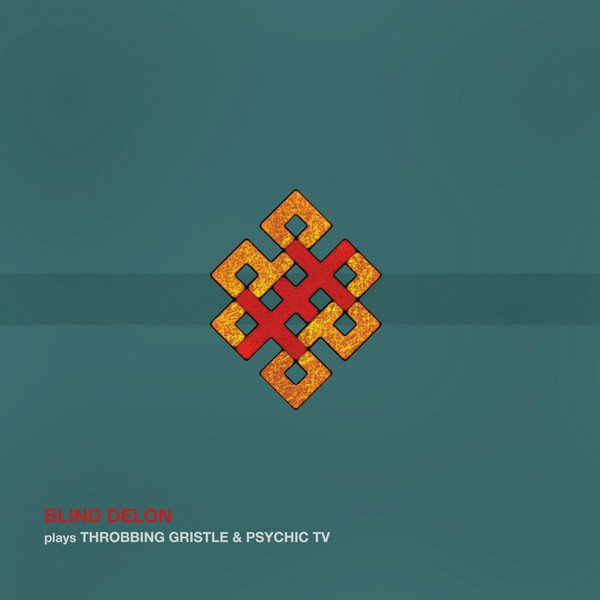 —The band released a single Tribute To Genesis Breyer P-Orridge and one of the songs was also released in the UPR compilation. How his music has influenced you?
—The band released a single Tribute To Genesis Breyer P-Orridge and one of the songs was also released in the UPR compilation. How his music has influenced you?
—Mathis: I think I came to Genesis through Drew McDowall and Coil, then Psychic TV, then Throbbing Gristle, then Cosey Fanni Tutti’s performances, and then in a lot of other ways.
Coil’s The Ape Of Naples was a musical explosion for me. I remember when I chose it in the 5 CDs that I could borrow with my young member car from my city’s library. It was also the time when my father was working on the creation of MaxMSP patches and on an abstract noise project with a cello and some modular synths. We listened to a lot of Pan Sonic and abstract things at home. So I discovered Psychic TV quite young but came back to it much later when I founded the industrial techno netlabel Kolkoz Records. It was in 2015 and I absolutely wanted to have an artistic line that mixed dance music and noise. So we signed artists like Bombardier, Drvg Cvltvre, and it allowed us to cultivate a very industrial sound, almost noise. At the same time, I started my mastering studio which is still my current professional activity. I had the impression at the time that we were working on quite new genre mixes and a very special sound, so to cultivate my ear and inspire me finding new artists for the label, I started listening mainly to three styles of music: classic grindcore (but also more recent things like Wormrot which is a band I love), Japanese noise rock of the late 80s, and finally noise like Prurient and obviously… Throbbing Gristle. Even if this is not a major influence of Blind Delon, we often find ourselves in their work when we experience things more noisy or close to sound design. Moreover, when Pedro from UPR proposed us to make a tribute song to Genesis we did not hesitate for a second, and to finish this work and pay tribute to another of his/her bands that we listened to a lot, we took a track of PTV and released this 7”.
—As influences you have named Denier du Culte and DZ Lectric & Anthon Shield. According to you, what were their influences on the music of their time? We are quite familiar with Anthon Shield’s first band, but can you please tell us more about Denier du Culte?
—Coco: It’s funny that you’re talking about Denier Du Culte, actually Mathis and I met in Chambéry (Fr) to do a cultural management and music studies, and our sound engineering teacher was Alain Basso, bassist and composer of Denier Du Culte, and also of Phaeton Dernière Danse. He was a great guy, he introduced us to sound design, he taught us some very unconventional sound techniques which we still use, and especially thanks to him we discovered a lot of things like Chrome or Sun City Girls.
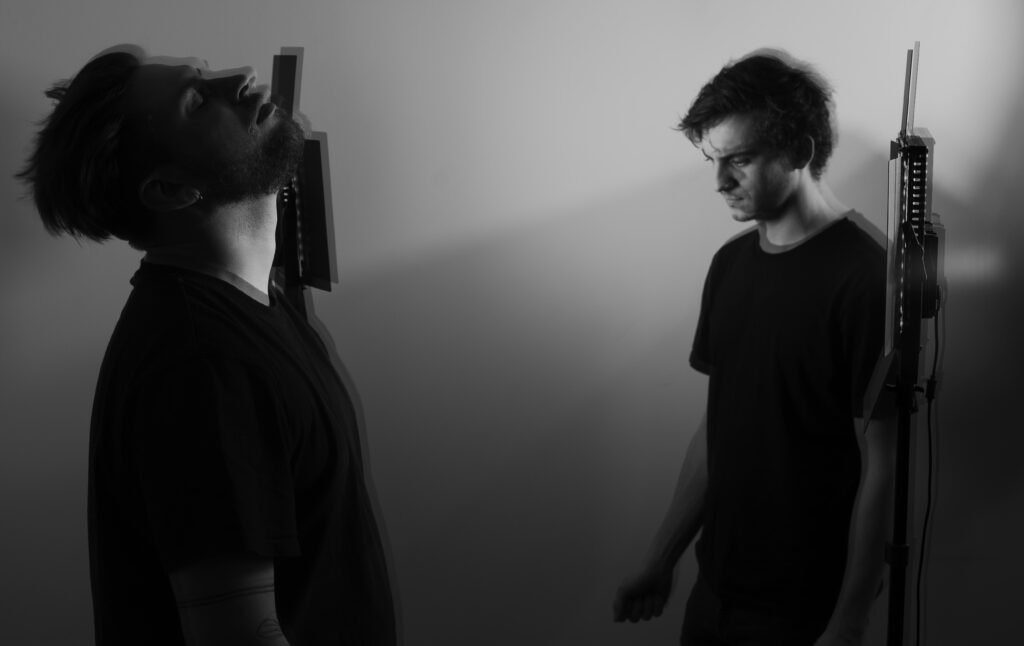 —Mathis: We are clearly not the most knowledgeable in this area, but we have always liked to be interested in what others did not listen to. We discovered a lot of things in this way, and the French experimental scene of the 80s is one of them. Why don’t we give enough consideration to its importance on the current scene? That’s another question.
—Mathis: We are clearly not the most knowledgeable in this area, but we have always liked to be interested in what others did not listen to. We discovered a lot of things in this way, and the French experimental scene of the 80s is one of them. Why don’t we give enough consideration to its importance on the current scene? That’s another question.
Look, in the 70s, Pink Floyd and Led Zeppelin sort of monopolized the scene by leaving aside a multitude of more obscure bands that we wouldn’t remember today without the internet. Medusa, Riff Raff, Elias Hulk, Shinki Chen, I will not say that it was the level of the Floyd but it was still the bomb! And this is still the case today, in 20 or 30 years we will remember those who had the chance to break through, but we will forget those who did not. I no longer know what principle or concept it is, but it is the question of the emergence of the group. But what we forget is that for an emerging artist, a thousand others sink. The big ones need the small ones, they need to be carried, and I think the work of Michel and Christian and many others has been that one, and it’s in that sense that they’ve been essential at their time.
—Coco: Fortunately, we live in a society that pays attention to alternative scenes. Today we celebrate everything and pay tribute to many artists who were not even known in their lifetime.
—Talking about Anthon Shield, the band has collaborated with his Black Egg project in the EP, Dancefloor Dummies. What can you please tell us of this experience? Was it easy to work with someone who has influenced you?
—Mathis: Michel is a really great guy, we worked very fast, and it went very well because I think we had a strong common idea for this project. Often in collaborations there is a part of concession that is made so that everyone gets along as best as possible, and things can be done. But there we didn’t need it, Michel brought his ideas, we loved what he proposed, we put ours and the tracks came out in the simplest way. It was a great experience.
 —With Pedro Peñas Robles, owner of UPR, you have collaborated in a few works, like the single de Blind Delon & HIV+ Drugs and the split with Schwefelgelb entitled Rubedo Edition. What do you find in common between your vision of music and Pedro’s?
—With Pedro Peñas Robles, owner of UPR, you have collaborated in a few works, like the single de Blind Delon & HIV+ Drugs and the split with Schwefelgelb entitled Rubedo Edition. What do you find in common between your vision of music and Pedro’s?
—Mathis: Pedro is the second person we met in the coldwave scene after Nico from Oráculo and we owe him a lot. In 4 years of friendship, we worked on his label maybe ten times, between albums, EPs, remixes, collaborations, we like to work with him, and we hope it’s reciprocal haha. I think we’re pretty similar about the intention we give to our music. Pedro loves the raw texts thrown on paper, and his words/voice has a sound that I find very wild, tense. Most of the time we try to bring the same thing in our music. We work on rough and explosive things, penetrating sounds, a kind of controlled violence.
—You also produce techno. Can tell us more about this? How was your live with IV Horsemen?
—Coco: The fact is that we are not setting ourselves a style of predilection. We are rather carried by the intention that we give to our music, between violence, space and black romanticism. This is why when we are asked the question, we answer that our music goes from postwave to synthpunk, because we feel that we do not belong to a particular style. It happens to us to produce more techno things, but it is never without integrating elements of other styles. For example, for the hybrid live we did with Tim from IV Horsemen, we were 4 on stage, Mathis played EBM and electro records, Théo and I had some synthesizers and Tim was screaming in his microphone. It was intense and it reflected our state of mind: taxonomy is boring, and nothing prevents us from mixing everything and seeing what it gives.
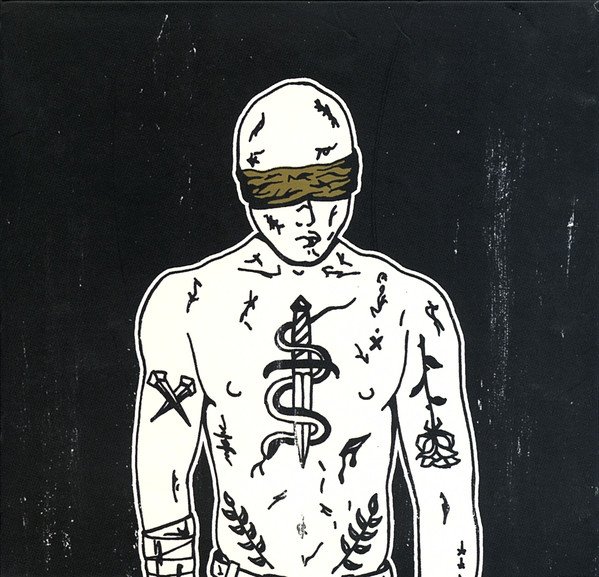 —Why did you call your first album Discipline? Was it a reference to the Festival in Toulouse or to the King Crimson’s album?
—Why did you call your first album Discipline? Was it a reference to the Festival in Toulouse or to the King Crimson’s album?
—Coco: It’s a tough question, we love the Discipline Festival and they are our friends but we have to tell the truth and we didn’t call our album like that in their tribute no. Haha
—Mathis: I believe this album has this name for 3 reasons: Discipline from King Crimson, Discipline from Electric Electric, and Disciplines from Sun Ra. These are three works that we listened to a lot while we were composing the album, and even if we did not draw directly from them, I think we learned an unconscious lesson from these records.
—Coco: King Crimson because we always liked their work, it’s probably even the group we’ve listened to most of our lives. It was the album Tony Levin joined the band on and he is a bassist that I love and that I am really inspired by. Electric Electric because they’re one of the best post-rock band from the century and what they do is crazy, both complex and accessible, and that’s unpretentiously what we tried to do in our music. And Sun Ra because there is a freedom feeling in his music that has always inspired us.
—How did your way of composing/working change with Discipline?
—Mathis: We have gone from an amateur composition method closer to home studio to the creation of what is today our working environment and our professional studio. We have equipped ourselves with vintage equipment, a lot of synthesizers from the 80s and instruments of all kinds. In fact, what has changed a lot is that we changed our conception of studio work. We started the “lab” mode and it meant equipping ourselves with everything that would allow us to break the conventional and classical ways of making music. Without getting into technical details, we can say that we like to make the sound go from a point A and recover it at a point B, much like everyone else, but here the path that will travel the sound is strewn with doors that we do not usually see there. Sending synthesizers in guitar amps, rhythm boxes in 4 or 5 mixing consoles in cascades. Lots of funny things.
—In that album you collaborated with a lot of artists, something that you have done frequently in the band’s career. Do you see music as something collaborative?
—Mathis: Absolutely! We believe that music is meant to be a meeting place. We like to work with friends, and sometimes with people we don’t even know, just because we like to meet people and discover their universes. That’s why many of our songs are featuring with singers or other musicians. And that’s also why we love to release our music on split format!
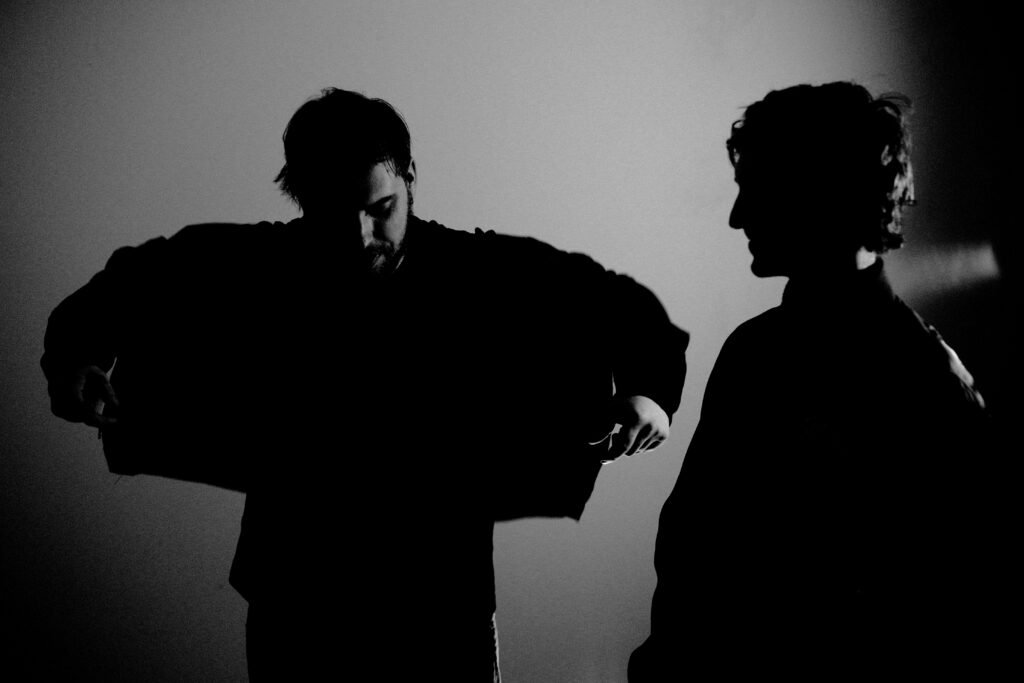 —You said that you wanted to do soundtracks, any news about this? Again talking about influences, you cited Francis Lai and François de Roubaix. Could you recommend any special work of any of them?
—You said that you wanted to do soundtracks, any news about this? Again talking about influences, you cited Francis Lai and François de Roubaix. Could you recommend any special work of any of them?
—Coco: No news on this side yet. But we still hope!
There’s a Francis Lai soundtrack that I like a lot, that’s Marie, a biography of a former American beauty queen, wife of an alcoholic boxer, who played a very important role in a parole scandal that was given to prisoners for money in 1977. The beautiful Sissy Spacek plays the role and it is an orchestral work of 1985 whose composition reminds many passages of Joe Hisaichi’s in the films of Miyazaki. In more instrumental work of Francis Lai, there is also Madly (1970) with Alain Delon and Mireille Darc or Les Pétroleuses (1971) which is superb.
—Mathis: For François de Roubaix it is essential to listen to the soundtrack he made for Les Grandes Gueules (1966)! If we talk about our influences in terms of film soundtrack from the 70s, and even if Lai and De Roubaix are surely the two main ones, we must also absolutely mention Franco Micalizzi, Pino Donaggio and Goblin. That Italian scene was on fire! As we often explain in interviews, we are children of the 90s who were passionate about a culture that was not the one of their times. We were both fortunate to be born with parents who left us a phenomenal cinematographic legacy, and what rocked our childhood were simply the music of these films. Blind Delon even if it is wild electro-punk project that yell on stage, there are above all love songs, we talk about encounters between characters, bodies, feelings, themes very present in the cinema of the 70s. Francis Lai, for example, was the specialist in love music, and we drew a lot of inspiration from his melodies for our songs. We try to connect this love for happy, carefree and hopeful melodies with the darkness and tension that the following decade and the cinema of the 80s offered us, of which we admire the work of Carpenter, David Frankor Alan Silvestri. And, of course, everything Howard Shore did for David Cronenberg, the sound design on Videodrome (1983) is just a masterpiece. But we could quote our influences for hours! What is sure is that cinema is the main.
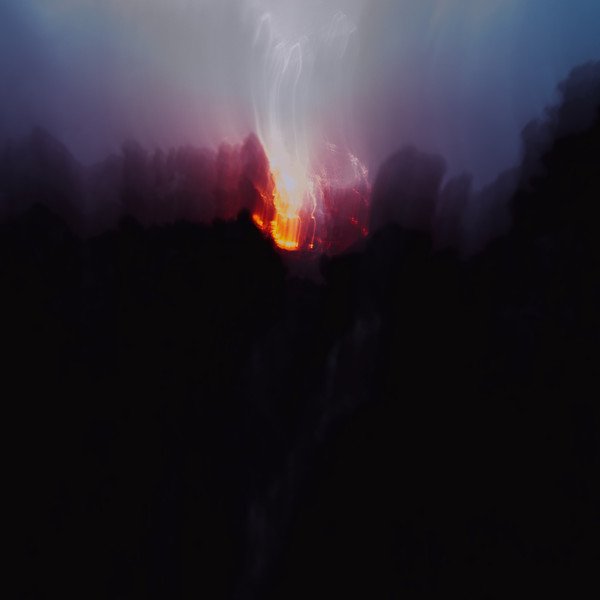 —Your last split with Contre Soiree is almost punk. Is this a new direction you plan to follow?
—Your last split with Contre Soiree is almost punk. Is this a new direction you plan to follow?
—Mathis: As we tried to explain above, we do not block on a particular style. So the answer to the question is no and yes. Since we are two in the band, even though COVID kept us from playing for a while, we worked on our sound and developed our music until we realized that we wanted to be able to play on stage everything we produce in the studio. For example, to have composed a record like Discipline was a fabulous experience, but it would have been very difficult for us to defend it on stage. So we will continue to produce what we want and what we like, but with the idea that we have to be able to play all this in front of our audience. Why punk? Because beyond the punk style, it is an energy in which we find ourselves. And our next productions will go in this direction. As we often remember, our motto is “Postwave and Synthpunk.” Postwave because we defend a broad vision of synthwave and this is felt in our music, and synthpunk because we have the feeling that it fits both the scenic proposal that we make and the sound that we defend on our records.
—Coco: We want to share our vision of the mix that can be operated between synthesizers, rhythm machines, and saturated guitars and basslines. These days we have the impression of being on a really electro-punk vibe.
—Mathis, you created the digital labels Kolkoz Records and WITHOUTLIES and Shawarma (three references on cassette). Can you please tell us about your experience running a label? Any plan of releasing something new in the future?
—Mathis: I will answer the second part before, and the answer is no! Nothing is planned and nothing will be planned. Even if managing several labels was a great experience for me! I met people who are still my friends today, I discovered a lot of artists, I was able to find my mastering studio, work on the music of others, and especially I had the feeling that I was doing something cool. In 2015 when I founded Kolkoz Records it was after a simple observation: what I like about music is the relationship between artists, it’s to see an idea emerge that will be fed by several people at the same time. So I decided to start a label based on the rather amazing model of singles. An artist would produce a track and I would find nine artists who would remix it, and that would be the artistic line of Kolkoz Records. And I had a blast! It allowed meetings that would never have taken place under other circumstances. We try to maintain this mode of operation with Blind Delon. Before we finish our tracks, we always wonder if it would be interesting to involve another person in this. When we release a record it’s often the same thing, that’s why we love to split our release, to mix people, styles, visions.
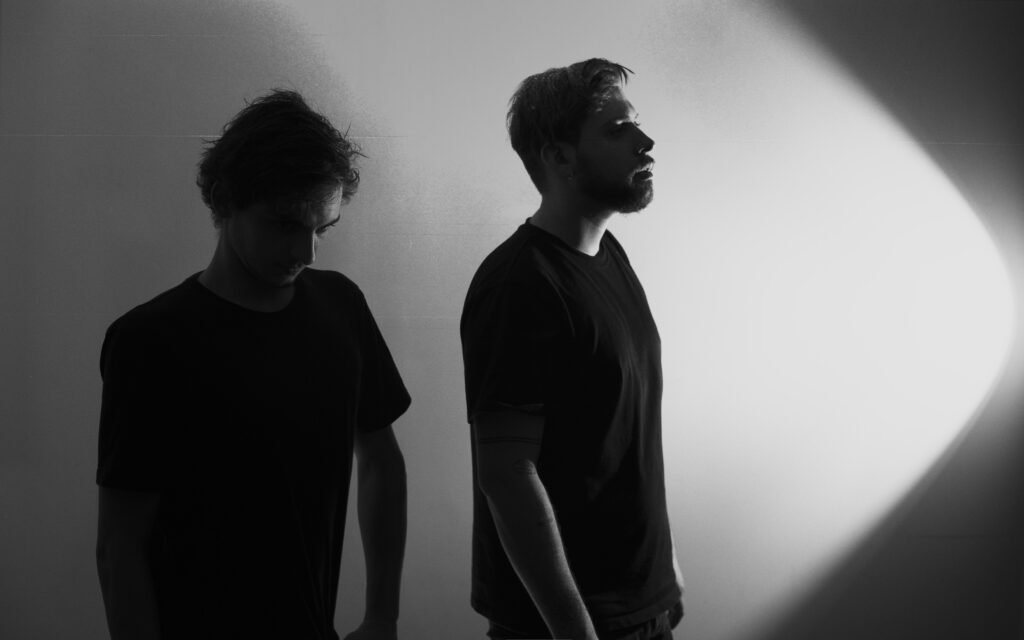 —Mathis, you travelled with DJ Varsovie as Eté 97 and did a tour across the south of France. What can you please tell us about it?
—Mathis, you travelled with DJ Varsovie as Eté 97 and did a tour across the south of France. What can you please tell us about it?
—Mathis: The only thing I can tell you is that I will reveal no secrets about the unfolding of this tour. You’d better ask the Prince of Darkness himself!
—To continue with side projects, you, Mathis have a lot of them: Psychedelic/prog rock with The Ricardo Salienas Oozing Project, a “Gorenoise” project called After Rectal, electro with Frust, ambient/drone with Le Non-Savoir. Do you have any spare time? Is there any style of music you would like to try in the future?
—Mathis: And many more! We are working together with Coco on Frust and Le Non-Savoir. We also have a new krautrock project in preparation. We also work with a drummer on an alternative rock band (Kyuss / Red Fang like). Unfortunately, I think I’m running out of time, the 24 hours I’m given are not enough. I’ve been trying everything I like to try for 6 years now and I think I’ll never be done trying things. Since the opening of our studio in January, I haven’t had much time to launch new projects with Coco or on my own and it frustrates me a lot haha. But I am preparing a solo 80s popwave project for 2022, it will be released on my friend Kendal’s label, Ritmo Fatale.
—We already asked Leroy Se Meurt about their cover of Absolute Body Control that appeared in the Oráculo album. Why did you choose Figures? Were ABC an influence for you? Are you going to try and see them at Ombra?
—Coco: Quite simple, we chose a major song to be able to try a minor version. ABC was not a major influence for us but, on the other hand, we have always listened to their music, and we have a special connection with Eric. He mastered a lot of our music, and we appreciate his work, so it was a way of paying tribute to him. For sure we’ll be there!
—What’s your favourite Alain Delon movie, as a fan?
—Coco: La Piscine!
—Mathis: Le Jour et la Nuit from Bernard-Henry Lévy.
No, it’s a joke, Le Guépard from Visconti is one of my favourite.
—Do you like other artists like Com Truise, Jichael Mackson or even Tronald Dump?
—Coco: I’m a big fan of Com Truise’s In Decay, I think I listen to it every month since it’s been released. Big Influence here.
—What are your plans for the future? A Split with IV Horsemen and Churros Batiment?
—Mathis: Exactly, we’ll release a 4-tracks split with our friend IV Horsemen on Soil Records, and we’re also working on a split one with Churros Batiment, but this one will not be under the Blind Delon’s name! We composed a really cinematic music to pay a tribute to John Carpenter and we decided to launch a Blind Delon alias for all the soundtracks and score things. We’ll give more info soon about it!
—Coco: We also have a track we made with our friend I Hate Models out soon and obviously we also work on our third studio album. No time to get bored.
—What can we expect of your concert at Ombra?
—Mathis: You can expect to see our new live set, new songs, new gear, new sound, new energy. Hope everyone will enjoy it.
—Coco: I add that it’s been a while since we’ve played, we’re hot as coals, think about taking your ear and teeth protections!




